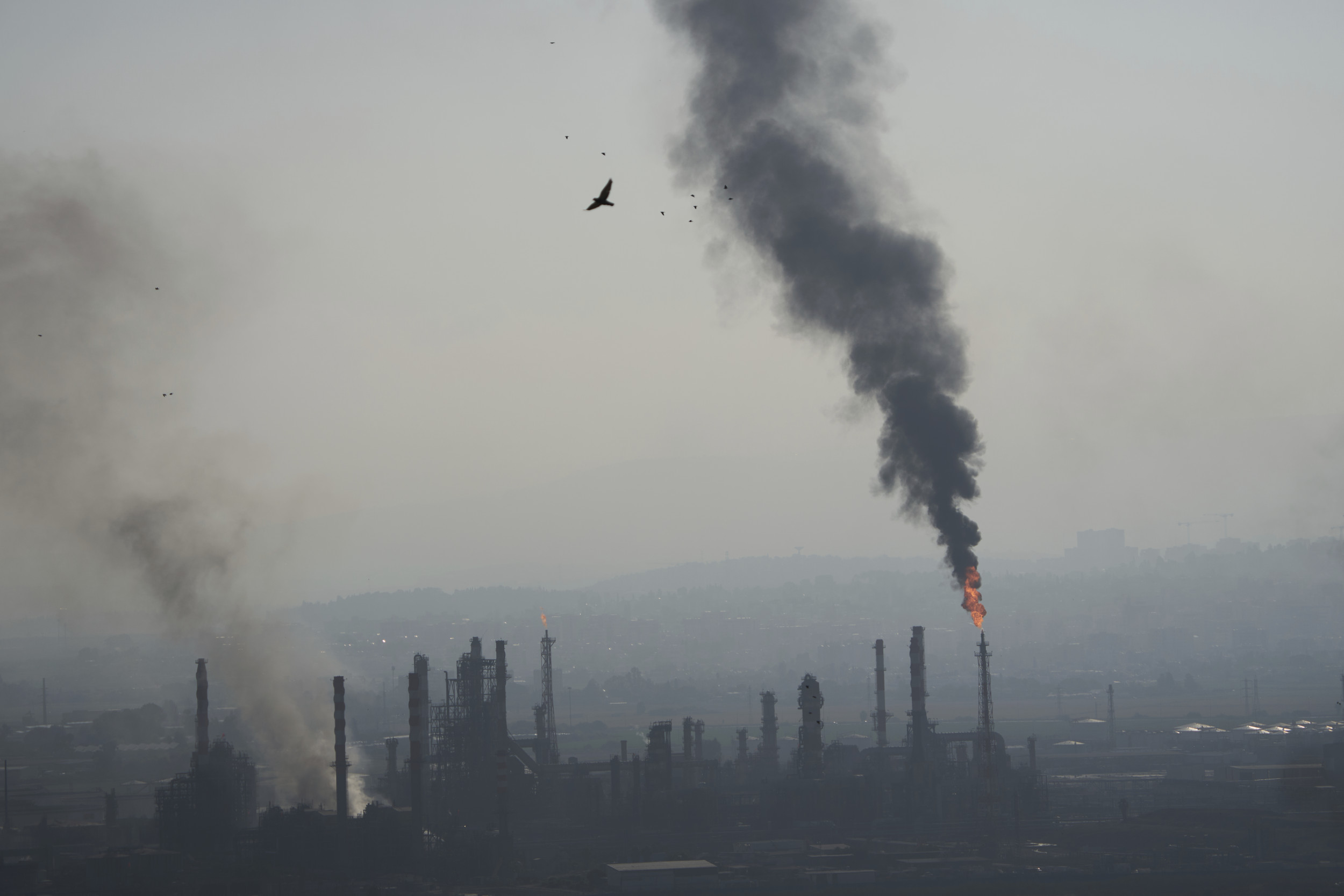
China’s energy supply from the Middle East could face severe disruptions as the Israel-Iran conflict threatens to spill over into a wider regional war.
The industrial superpower’s $19 trillion economy relies heavily on coal, natural gas and crude oil for manufacturing. China was the world’s largest consumer of energy in 2024 and the second-largest consumer of oil behind the United States, according to the London-based Energy Institute.
Why It Matters
Israel has launched a week of airstrikes targeting sites in Iran, including facilities central to Tehran’s nuclear program, but its energy export infrastructure has so far been spared. That could change as the war intensifies, and fears are growing that Iranian political leaders could respond to any U.S. military intervention by blockading the strategic Strait of Hormuz.
Officially, China imported no oil from Iran last year. However, energy researchers say Iranian oil delivered via unofficial channels, such as transshipment, largely end up in the country’s smaller independent refineries. The U.S. has in the past sanctioned Chinese entities that allegedly assist in Iran’s secret oil trade in defiance of Western restrictions.
Over 90 percent of Iran‘s sanctioned—and therefore cheaper—crude oil exports go to China, mostly via transshipment points such as Malaysia, said commodities analysts at Kpler. But Chinese energy imports are further exposed in or near the Persian Gulf, where six of its top 10 oil suppliers are found according to official data.
What To Know
While Beijing’s top oil supplier in 2024 was neighboring Russia, shipments from Saudi Arabia, Iraq, Oman, the United Arab Emirates, Kuwait and Qatar together accounted for over half of China’s oil imports, according to Newsweek‘s analysis of available customs data.
The U.S. bought the bulk of its crude oil from Canada. Saudi Arabia and Iraq were among its top 10 suppliers but only accounted for around 8 percent of its imports.
Energy markets are jittery. U.S. President Donald Trump‘s call for Iran’s “unconditioned surrender” sent up oil prices this week, but global costs would spike if Tehran follows through on its threat to close the Strait of Hormuz, which links the Persian Gulf to the Gulf of Oman and the wider Indian Ocean region.
The U.S. Energy Information Administration estimates that up to 20 million barrels of crude oil each day flow through the waterway, which is just 21 miles wide at its narrowest point.
Oil prices are still on the rise as the Israel-Iran missile war enters its seventh day. West Texas Intermediate crude, a U.S. price measurement, topped $76 per barrel, a five-month high. The international standard Brent crude reached $77 per barrel, a four-month high.
A major conflict that cuts off supply lines from the region could result in a global economic shock that sends oil above $100 per barrel. Prices last reached that point after in March 2022, after Russia’s invasion of Ukraine.
Officials in Beijing appear to be planning for the worst. China has been building up crude oil stockpiles by refining less than it buys and produces itself, according to Reuters. What’s more, disruptions in the Middle East could directly benefit Russia, among the world’s top energy exporters.
China’s Foreign Ministry did not immediately respond to a written request for comment after hours.
What People Are Saying
Howard J. Shatz, a senior economist at the RAND Corporation, said in analysis published by the think tank this week: “Oil prices jumped with the start of Israel’s action against Iran, suggesting that oil markets see increased risk, but it is too soon to reach a concrete judgment on global economic consequences.
“There will be two specific factors to watch to make a better judgment as to global economic consequences: first, whether Iran attacks Gulf Arab oil infrastructure, and second, whether passage through the Strait of Hormuz is blocked. If either or both happen, energy prices are likely to rise much further, raising the risk of a global recession. If neither happens, there will be heightened risk, but more modest energy price increases to which the world can probably adjust, although with a modest drag on growth.”
Ariel Schalit/AP
What Happens Next
World leaders have moved to inject calm in the Middle East, the latest being Chinese President Xi Jinping and Russian counterpart Vladimir Putin, who in a call on Thursday condemned Israel for escalating tensions by striking Iran.
“If the conflict escalates further, not only will the conflicting parties suffer greater losses, but regional countries will also suffer greatly,” Xi said, according to China’s official Xinhua news agency.
“The parties to the conflict, especially Israel, should cease fire as soon as possible to prevent the situation from escalating in turn and resolutely avoid the spillover of war,” he added.
